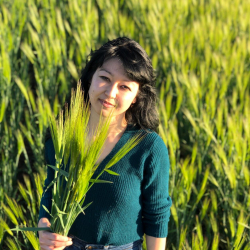
FOOD AND DRINKS

Module 9 « Food and refreshments » .
- Check it up (ex.1, p.86).

Fish, apples, milk, juice, water, bananas, cheese, yoghurt, meat, eggs, cake, coffee, sugar, biscuit, potatoes, bread, onions, salt, chicken, peppers, ice-cream, olive oil, rice, tomatoes, carrots.
Which of these items are fruit/ meat /vegetables /drinks /dairy products ?
____, ____, ____ are fruit
____, ____, ____ is meat
____, ____, ____ are vegetables
____, ____, ____ are drinks
____, ____, ____ is dairy products

Fish, apples, milk, juice, water, bananas, cheese, yoghurt, meat, eggs, cake, coffee, sugar, biscuit, potatoes, bread, onions, salt, honey, pepper, ice-cream, olive oil, rice, tomatoes, carrots. Do you like ________(fish)?
- Yes, it’s delicious / very tasty / great?
No, it’s horrible / terrible / awful?

Fish, apples, milk, juice, water, bananas, cheese, yoghurt, meat, eggs, cake, coffee, sugar, biscuit, potatoes, bread, onions, salt, honey, pepper, ice-cream, olive oil, rice, tomatoes, carrots. Which of the words are countable / uncountable?
Countable
Uncountable
apples, bananas,
eggs, cake,
biscuit, potatoes,
onions, tomatoes, carrots, pepper
fish, milk,
juice, water,
cheese, meat,
coffee, sugar,
bread, salt,
honey, ice-cream,
olive oil, rice, yoghurt

Study the rule:
some
We use some in affirmative sentences ( утвердительных предложениях )
any
much / a little
To make this dish you need some tomatoes, an egg and some olive oil.
We use any in negative/ interrogative sentences ( отрицательных и вопросительных предложениях )
many / a few
We use much / a little with uncountable nouns ( с неисчисляемыми существительными )
We need to go to the supermarket; we haven't got any eggs and we haven't got much olive oil. Are there any tomatoes in the fridge?
I think we have a little milk but we have much juice in the fridge.
We use many / a few with countable nouns ( с исчисляемыми существительными ).
a lot of
There are many apples on the table. A few eggs are left.
We use a lot of with countable and uncountable nouns ( с исчисляемыми и неисчисляемыми существительными ).
The exception
We need a lot of olive oil and tomatoes to make this dish.
We use some in requests ( в просьбах )
Would you like some tea?
Can I have some cakes, please?

Make word combinations
packet
carton
bag
kilo
bar
piece
jar
bottle
loaf
box
milk
juice
cake
apples
sweets
honey
potatoes
chocolate
crisps
bread
a
of

Students Check Form. Name _________________________ Class______________________
Now I know……..
Very well
1. The names of food and drinks.
OK
2. The names of containers / packaging.
Not very well
3. To tell how much food there is.
4. To exchange opinions ( обмениваться мнениями ) about one’s favourite food..
5. To tell about traditional meals in Britain.
Draw how you feel.

Homework:
The homework for the next lesson is:
SB ex.9*, p.87; to learn new vocabulary 9a
Make a shopping list for your favourite dish. You may use these sentences as a model:
My favourite dish is ….
I need to buy ……to make it.
.


























